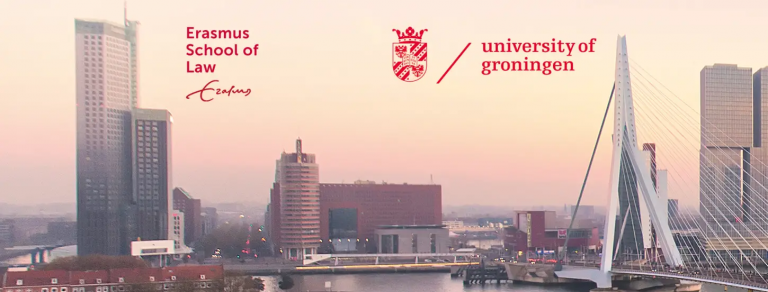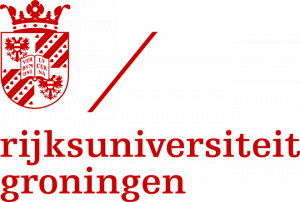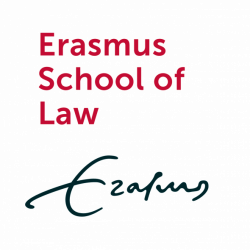Events

Call for papers: The Digital and Green Transitions: Twins in Tens
Location: Erasmus School of Law – Erasmus University Rotterdam
Date: 26 & 27 September 2024
Organizers: Dr. Enrique Santamaria Echeverria (Erasmus School of Law) and Chiara Angioli (University of Siena)
Digitalisation and climate change have sparked, on their own, two enormously disruptive
processes: the digital and the green transitions, often referred to as the “twins” transitions.
At the EU level, these two transitions have been accompanied by hectic legislative activity. On the digitalisation side, recent (proposals for) regulations include the Digital Markets Act, the Digital Service Act, the Data Governance Act, the Data Act, the Artificial Intelligence Act, and the
proposal for Common European Data Spaces. This expansive regulatory turn arguably responds to the demands, challenges, and opportunities that digitalisation presents, for example in terms of competitiveness and economic growth. Data, in particular, which was initially regulated from a privacy and data protection perspective (most notably the General Data Protection Regulation), is now the subject of several regulatory measures and proposals to boost economic growth through data sharing, quality data (pools), interoperability, and cybersecurity.
On the side of the green transition, new legislative instruments have been recently adopted (e.g., European Climate Law). The need to protect the environment and face climate change is leading legislators, scholars, and courts to consider and (re-)assess the activities of private actors under the lenses of environmental law (e.g., the proposal for a Directive on Corporate Sustainability Due Diligence, the decision of the Court of Aja, 26 May 2021, Shell, under appeal, and the pending case Greenpeace Italy et. Al. v. ENI S.p.A. et al.).
Against this backdrop, the workshop aims at exploring the interplay between the different bodies of the law enabling these twin transitions, with a particular focus on the following three
overarching questions:
- The relation between the legal underpinning and normative foundations of both
transitions: is it possible to reconcile the paradigms of growth embedded in the digital
transition with those of environmental protection and sustainability supporting the green
transition? Or are the two logics behind them simply too different to complement each
other? - The growing importance of data in the economy poses the question of the environmental impact of data processing activities. Is the current framework of data law and governance sufficiently equipped to deal with this problem, or do we need a new (theoretical) framework that accounts for the benefits and harms arising from the environmental impact of digital technologies, in general, and data, more specifically?
- At the EU level, several proposals have been advanced to use data-driven technologies to enhance the capacity to understand and solve environmental challenges (e.g. in the Green New Deal and the prospective Common European Green Deal Data Space). What are the opportunities, challenges and pitfalls of using digital and data-driven technologies to
address the environmental problems of our time?
Submission Guidelines: If you are interested in contributing, kindly submit your abstract to sectorplan@law.eur.nl indicating author name(s), affiliation, and contact information by May 31. The workshop will take place on the 26 and 27 of September at Erasmus University Rotterdam. Successful applicants will be informed by June 15 and will be asked to submit a paper (between 5000 to 8000 words) by September 10.
Publication Opportunity: Selected papers will be invited for a post-conference publication project. Details will be shared during the event.
Registration and funding: There are (limited) funds available to cover travel and accommodation costs. Please indicate in your submission whether you would require funding to attend the workshop.
Important dates:
- Abstract Submission Deadline: [May 31, 2024]
- Notification of Acceptance: [June 15, 2024]
- Paper submission [September 10, 2024]
- Workshop Date: 26-27 of September
Contact information: For inquiries and submission of abstracts, please contact the organising committee at sectorplan@law.eur.nl.
We look forward to your contributions!

Call for papers: Between Autocratic Legalism and Right-Wing Legal Mobilization
Location: European University Institute, Florence, Italy
Date: May 29, 2024
Organizers: Gráinne De Búrca (EUI), Scott Cummings (UCLA), Karolina Kocemba (EUI), Michał Stambulski (EUR)
The current global wave of right-wing populism differs from its previous historical manifestations in its greater reliance on the legal apparatus (Blokker 2019; Krygier 2022). Once in power, populist movements use their democratic mandate to change public law and introduce institutional arrangements that limit opposition and maximize their chances of victory in the next electoral cycle (Scheppele 2018). This use of law to reform the judiciary and media or undermine civil society challenges the values of liberal constitutionalism, such as the rule of law, freedom of speech, or civic engagement. Analyses of this development, primarily conducted within the comparative constitutional law paradigm under the banner of ‘autocratic legalism,’ focus on governments and political leaders as the primary agents of populist legal transformations. However, while these agents are central to the changes observed, they do not act alone. They tolerate or actively collaborate with non-state actors (NGOs, alternative media, social media communities, grassroots movements) who share conservative values and the fundamentals of populist ideology, which is based on the dichotomous division of society into an intrinsically good people and corrupt elites (Müller 2016). Conservative legal movements are a special group among them. By interacting with these actors, populist governments gain legal knowledge with additional legitimizing arguments and a pool of professional staff for institutional capture.
Although these actors have been active for some time (Southworth 2008; Teles 2012), the rise of populism creates new opportunity structures, mainly through access to judicial positions and the use of populist institutional design for right-wing legal mobilization. The populist government can financially support the activities of right-wing NGOs through grants and subsidies, thereby increasing their litigation capacities. In addition, by controlling the legislative process and court packing, populism increases the receptiveness of the judicial system to conservative values. Analyzing this phenomenon will help us to recognize and understand the resilience of contemporary constitutional populism and the full extent of the threat it poses to the rule of law and human rights.
During the workshop, we would like to juxtapose studies on the transformative dimension of populism from the perspectives of comparative constitutional law, socio-legal studies, legal theory, or human rights and discuss the following issues:
- How do populism
and autocratic legalism create opportunities for bottom-up legal mobilization?
How do social movements under populist and hybrid regimes use the law to challenge liberal conceptions of human rights and the rule of law?
In what ways do liberal NGOs engage in legal mobilization under populist regimes, and how does populism impact their actions?
What are the links (if any) between non-state actors mobilizing the law and populist regimes (e.g., financial, ideological, personal)?
How do these regimes interact with grassroots movements to gain support and legitimacy?
What is the transnational impact of domestic right-wing legal mobilizations?
Submissions with a short abstract (up to 400 words) should be sent by March 4, 2024 to Karolina Kocemba (karolina.kocemba@eui.eu).

Call for papers: Workshop Theorizing Protest and Legal Mobilization
31st World Congress of the International Association for Philosophy of Law and Social Philosophy in Seoul from 7 – 12 July 2024.
Call for papers for special workshop by organizers: Sanne Taekema (Erasmus University Rotterdam) and Michał Stambulski (Erasmus University Rotterdam).
In 2011, Time magazine named ‘the Protester’ its Person of the Year. The year was marked by protests that were unprecedented in their dynamism and global reach. From the Arab Spring to Athens, from Occupy Wall Street to Moscow,” the magazine’s cover proclaimed. Since then, we can observe two dynamics. First, the protests have not stopped, but have become more interconnected and global. Second, the social movements behind them have increasingly incorporated legal language, tools, and strategies into their actions. Strategic litigation or an application to an international court have become a constant in the repertoire of social movements. From Climate Strike to Urgenda Case, from Polish Black Protest to European Court of Human Rights” could be on the cover of Time today.
The intertwining of protest, social movements, and law challenges classical legal dichotomies such as private-public, creation-implementation, political-legal or individual-community. The aim of this special workshop is to reflect on theoretical approaches to protest and legal mobilization from the perspective of contemporary legal and political philosophy.
We encourage proposals for papers on the following, but not exhaustive, topics:
– protest as rule generator
– laws and practices of democratic dissent
– violence and legal change
– the impact of protest on legal interpretation
– the rule of law and social movements
– strategic litigation in the XXI century
– the contemporary status of freedom of assembly
– the constitutional status of social movements
– constituent power and legal mobilization
– indigenous rights movements and non-Western epistemologies of law
– law and the political economy of legal mobilization
Submissions with a short abstract (up to 400 words) should be sent by 18 of December 2023 to Michał Stambulski (stambulski@law.eur.nl). The organisers will inform about the acceptance of the paper by 22 of December.
Past events

Symposium: "The Public, the Private and the Hybrid: Comparative Law in the Age of Governance"
Date: 15 September 2023
Location: Norman Building – Lutkenieuwstraat 5, 9712 AW Groningen (Netherlands)
Annual Conference of the Netherlands Institute for Law and Governance (NILG) in occasion of the 10th anniversary of the European Journal of Comparative Law and Governance (EJCL).
The European Journal of Comparative Law and Governance (EJCL) was founded in 2013 as a journal published by Brill and run under the flag of the Netherlands Institute for Law and Governance (NILG). From the viewpoint of comparative law scholarship, the European Journal of Comparative Law and Governance was born as the successor of the Electronic Journal of Comparative Law, a journal of which Prof. Sjef van Erp was Editor-in-Chief from 1997 until 2013. He was also the first Editor-in-Chief of the European Journal of Comparative Law and Governance until 2014, when Prof. Aurelia Colombi Ciacchi succeeded him in this role. Since 2017, EJCL has three editors: Prof. Aurelia Colombi Ciacchi, Prof. Sjef van Erp, and Dr. Adam McCann.
Since its first volume (published in 2014), the European Journal of Comparative Law and Governance has acquired a very wide international readership. It has published contributions by scholars from all continents of the world. It is now included in the prestigious Web of Science, and it is ranked as an A-journal in several European countries.
The title of this conference mirrors the interaction between private, public, and hybrid forms of governance relevant for comparative law research. Invited speakers include the EJCL editors; Brill Publishing representatives; members of the EJCL Advisory Board; EJCL authors; guest editors of EJCL special issues; and authors of recent excellent comparative law (and governance) works.
Programme
Time | Topic |
|---|---|
9:00-9:10 | Welcome words and introduction |
9:10-9:20 | 10 years of European Journal of Comparative and Governance |
9:20-10:20 | The Publice, the Private, and the Hybrid: Comparative Law in the Age of Governance
|
10:20-11:20 | Rethinking Comparative Law:
|
11:20-11:35 | Coffee break |
11:35-13:00 | Comparative Law and Planetary Governance:
|
13:00-14:00 | Lunch Break |
14:00-15:20 | Public Interests in Private Obligations:
|
15:20-15:35 | Coffee break |
15:35-16:55 | Comparative Constitutionalism and Human Rights:
|
17:00 | Closing remarks and drinks |

Conference: "The Public-Private Challenge in Current EU Law and Policy"
Date: 28 September 2023
Location: Universitaire Stichting Brussels
The steady and succesful growth of research on the interplay between public and private interests and actors at both Erasmus School of Law (EUR) and Faculty of Law of the University of Groningen (RUG) was further strengthened by the establishment of the ‘The Public-Private Challenge’ – a collaboration between the cross-disciplinary research programmes Rebalancing Public & Private Interests (EUR) and Rethinking Public Interests in Private Relationships (RUG) – in the framework of the Dutch Sector Plan for Law (2019-2024).
After last year’s successful conference, to keep reflecting on these questions, we are pleased to announce the theme of this year’s conference: “The Public-Private Challenge in Current EU Law and Policy”.
The idea of the conference is to bring expert scholars, policy makers and civil society (legal practitioners, NGOs and initiatives) together to discuss different policy initiatives whereby the -not always harmonious- interplay between public and private actors is specially relevant. In particular, we will focus on the following four macro topics: 1. New Trends in Consumer Protection and Product Liability; 2. Harmonizing Insolvency Law: Challenges Ahead; 3. The Promises and Perils of Human Rights Due Diligence and; 4. The European Health Data Space Proposal: Challenges in Digitalisation and the European Strategy for Data. For the full programme please scroll down. In order to ensure a smooth organisation, kindly register for free before September 16, 2023.
To encourage attendance from young scholars based in the Netherlands (PhD candidates and postdoctoral researchers) limited funding (up to €200 euro per participant) to cover travel expenses to Brussels is available. To apply, kindly send an email to sectorplan@law.eur.nl before September 1st, 2023, with a brief description (max. 100 words) of how your research project aligns with the topic and panel(s) of the conference. Decisions on funding will be taken on the basis of the connection between the projects and the theme of the conference. The outcome of the applications will be communicated by September 4th, 2023.
Programme
Time | Topic |
|---|---|
8.45 | Registration and Welcome Coffee |
9.00 | Opening of the conference by René Repasi (Erasmus School of Law / MEP S&D Group) |
9.20 | 1st Panel: New trends in Consumer Protection: the new Product Liability Directive:
|
10.50 | Coffee Break
|
11.10 | 2nd Panel: Harmonizing Insolvency Law: Challenges Ahead:
|
12.00 | Lunch Break |
13.40 | 3rd Panel: The Promise and Perils of Human Rights Due Diligence:
|
15.10 | Coffee Break |
15.30 | 4th Panel: The European Health Data Space Proposal: Challenges in Digitalisation and the European Strategy for data:
|
17.00 | Closing remarks by:
|
17.15 | Farewell drinks |
For more information, please click here.

Justice in international investment law in a post-ISDS world: is the world without investment arbitration, a world with(out) justice?
Date: 23-24 November 2023
Location: Erasmus University Rotterdam
Is the world without investment arbitration, a world with(out) justice? Investor-State Dispute Settlement has been undergoing profound criticism for the past fifteen years. This has, in turn, generated a wave of initiatives and proposals for reform, either institutionally mandated (e.g., the work of the UNCITRAL Working Group III) or commenced by scholars and civil society organizations. These proposals range from minimal reforms of the current investment arbitration mechanism (e.g., introducing a code of conduct for arbitrators) to a complete eradication of the system. What these all have in common is the acknowledgment that the status quo is untenable and requires at least some degree of change.
Starting from these premises, the conference intends to push the ‘reform’ debate forward and interrogate what a ‘post ISDS’ world entails in terms of delivering ‘justice’.
The conference aims to address two key questions: (i) whether and, if so, (ii) what form(s) of ‘justice’ will feature in the post ISDS scenarios proposed thus far.
The conference will be structured along the following themes:
- The institutional architecture and implications of the different reform proposals, including the (re)turn to a full ‘privatization’ of ‘justice’ in investment disputes.
What are the salient features of the different proposals advanced so far? Will an ‘institutionalization’ of dispute settlement (e.g., MIC) significantly alter the perception of ‘justice’ of the ISDS system? Will abolishing treaty-based arbitration make contract-based arbitration the default mechanism? What would be the role of mediation and (possibly) facilitation mechanisms?
- The different frameworks and notions of ‘justice’ implicitly or explicitly articulated in the various reform proposals;
Justice has been articulated in a variety of forms. Yet, investor-state arbitration has been prominently considered a ‘private’ dispute resolution mechanism. What is the relationship between the dispute resolution function and ‘justice’? What other concepts of justice (e.g., distributive) do or should ISDS reform proposals normatively endorse, considering current global (e.g., climate) challenges? What type of reforms would be needed to entertain those concepts?
- ‘Justice’ for affected stakeholders other than investors or States (e.g., local community-based mechanisms, or ‘transitional’ justice for investment);
In whose interests and benefits will justice be delivered in the scenarios proposed thus far? What is the subjective dimension of justice present in the reforms and how is it addressed? What type of mechanisms can we imagine for ‘inclusive’ justice, within and beyond what has been suggested so far?
- ‘Justice’ in the substantive provisions of investment treaties and contracts underlying investment disputes;
Procedural mechanisms might well not be able to respond sufficiently to certain ‘justice’ needs and claims in the investment context; what type of substantive reforms are needed to generate a ‘just’ investment environment, both in the relevant treaties and further contractual arrangements (including insurance and financing agreements)?
- ‘Justice’ beyond dispute settlement. Alternatives to the current model of investment and (economic) development:
What paradigms of ‘development’ does the current set-up of investment law and arbitration respond to? What other alternatives to FDI can we imagine leading to a ‘just’ path for prosperity? What other (possibly bottom-up) models can be identified in pursuing justice in the context of ‘development’?
The conference aims at contributing to the current debate on the reform of investment arbitration, by shifting the focus from the proposals as such towards the forms and notions of justice at the core of these proposals. While a seemingly theoretical question, the issue of justice in investment arbitration has profound practical implications. International investment law traditionally offers foreign investors access to compensation through investor-State arbitration, based on a highly efficient enforcement mechanism. Yet, the right for recourse is exclusive and narrowly accessible only to foreign investors, at the costs of other affected stakeholders such as local communities.
The objective of the conference is to dissect the reform proposals and investigate whether these reforms are in fact just ’business as usual’ or whether they leave any space for a different paradigm that is not merely focused on financial remedies granted to investors, especially considering the consequences generated by the climate crisis. The conference will also explore what conceptual shifts are potentially necessary in the current architecture of the investment governance to address (re)distributive concerns.
The format of the conference will give significant resonance to the discussion. Relying on the Sustainability in Arbitration and Investment Law (SAIL) research initiative at Erasmus School of Law, the conference intends to bring together a varied group of experts. The intent is to ease the epistemic, conceptual, and practical divide between practitioners, civil society organizations and academics from different geographies and disciplines.
We welcome abstracts (max. 500 words) addressing one or multiple aspects of the themes indicated in the call from different legal and non-legal disciplinary perspectives, including economics, political economy, and development studies.
If you are interested in contributing, kindly submit your abstract to sail@law.eur.nl by July 16th. The conference will take place on the 23rd and 24th November at Erasmus University Rotterdam. Successful applicants will be informed by October 1st and will be asked to submit an extended abstract (max. 3000 words) by November 5th.
Select papers will be invited for a post-conference publication project. Details will be shared during the event.

Seminar "De Corporate Sustainability Due Diligence Directive: naar gepaste zorgvuldigheid in mondiale waardetekens?"
Date: 6 June 2023
Location: Erasmus University Rotterdam
Organizers: Prof.mr. Liesbeth Enneking (Erasmus University Rotterdam) and Prof.mr. Loes Lennarts (Rijksuniversiteit Groningen)
The seminar “De Corporate Sustainability Due Diligence Directive: naar gepaste zorgvuldigheid in mondiale waardetekens?” will take place on the 6th of June 2023 at the Erasmus University Rotterdam.
In February 2022, the European Commission presented its proposal of a Corporate Sustainability Due Diligence Directive (CSDDD). Essentially, provisions in this Directive would obligate big European companies to attempt due diligence within human rights and the environmental area. After the European Council, it is expected that the European Parliament will take a final position regarding this proposal around the beginning of June, after which negotiations will start. In this seminar, scholars from Groningen and Rotterdam will reflect on the context, substance and implications of the proposed CSDDD, from different legal perspectives and in light of the most recent developments. This seminar is organized by Prof.mr. Liesbeth Enneking (Erasmus School of Law) and Prof.mr. Loes Lennarts (Faculteit Rechtsgeleerdheid Rijksuniversiteit Groningen), with the support of the EUR/RUG research centre ‘The Public-Private Challenge’. The seminar aims to bring together researchers from RuG and EUR with interests and expertise on this subject, to share knowledge and create opportunities for future collaborations.

Conference Digital Technologies, Public Policy and Competition Law 2023
Date: 1 and 2 June 2023
Location: Erasmus University Rotterdam
Organizers: María Campo Comba (Erasmus University Rotterdam), Tjasa Petrocnik (Tilburg University)
It is our pleasure to announce that on 1 and 2 2023, the conference ‘Digital Technologies, Public Policy and Competition Law’ takes place in Rotterdam, the Netherlands.
Organized in the framework of the Law Sector Plan Rebalancing Public and Private Interests (Erasmus University Rotterdam) and the Law Sector Plan Digital Legal Studies (Tilburg University), and in collaboration with the Erasmus Center for Economic and Financial Governance (ECEFG), the conference will explore if and how competition law should adapt to technological developments and societal disruptions posed by the growing power of digital technologies while balancing public and private interests accordingly. Some of the issues we will discuss are, for instance, whether the enforcement of competition law against (big) tech companies can and should integrate public policy considerations beyond efficiency, like fundamental rights or sustainability concerns, and whether consumer welfare is an obsolete concept for dealing with the challenges of digital markets and other problems like climate change, inequality, and threats to democratic processes.
The conference will take place in an in-person format.

Workshop “Constitutionalism and Political Economy. New Trajectories and Opportunities for Socio-Legal Scholarship”
Date: 22-23 of June 2022
Location: Oñati International Institute for Sociology of Law
Organizers: Ioannis Kampourakis (Erasmus University Rotterdam), Michał Stambulski (Erasmus University Rotterdam)
The purpose of the proposed workshop is to juxtapose perspectives and recent research in constitutionalism and political economy. The last few decades have been a period of constitutionalisation and depoliticisation of regulations concerning broadly understood economics, such as free market principles and financial market operations. At the same time, other social goods such as public health or climate have been commoditized. The economic crisis of 2008 sparked renewed interest in the topic of inequality and the social foundations of economic regulation within the political economy paradigm. Moreover, research conducted in this paradigm increasingly points to the constitutive role of law for the economic sphere. It was also a period of grassroots and civic social activism and related ideas for remodeling constitutionalism from legal to political and social.
In this workshop, we want to consider what political economy can offer constitutionalism and vice versa. The law and political economy perspective seems to contain a creative critique of the dominant liberal constitutionalism and economic constitution, both global and European. And constitutionalism allows one to ask about the positive agenda and normative background of such a critique. The collision of these perspectives can thus open new ways of problematizing issues important for socio-legal scholarship as inequality, the limits of the free market, the power of corporations, and the democratization of economic relations. During the workshop more than fifteen researchers from five countries and nine universities will be engaged in fundamental discussions of these new trajectories and opportunities for socio-legal research.
For more information, please contact Dr. Michał Stambulski at stambulski@law.eur.nl

Workshop “Populism, Non-State Actors and Legal Mobilization in Europe”
Date: 22nd of March 2023
Location: European University Institute, Florence
Organizers: Karolina Kocemba (European University Institute), Michał Stambulski (Erasmus University Rotterdam)
Since the populist rise (especially in Central and Eastern European countries), scholars focusing on human rights and EU law have used the terms such as ‘rule of law crisis’, ‘human rights backlash’ or ‘democratic backsliding.’ Despite these terms primarily referring to policies and rhetoric carried out by populist governments, there are more actors than just populist parties involved in and responding to current development in Europe. On one hand, right-wing and fundamentalist organizations use legal mobilization to challenge human rights and European standards. Those organization with the support of populist governments are seeking social change through extensive usage of legal norms, discourse, or symbols. Therefore, institutions such as constitutional courts and constitutional litigation, designed to protect liberal rights and freedoms, are used to restrict them. Right-wing organizations learned how to use legal actions and tools, sometimes even more efficiently than liberal and human rights organizations that mastered these tools in the last decades. On the other hand, their effectiveness spurs the activities of liberal, rule-of-law-oriented legal (academic and judicial) organizations. Previously rather abstract categories like ‘constitution’ and ‘rule of law’ are becoming political ideas capable of mobilizing protest. In the middle of this we also have the EU institutions responding to the populist and nationalist challenge by seeking to close its democratic deficit and mobilize European political citizenship.
During the workshop, using both empirically and theoretical oriented papers, we would like to address the following questions:
- what are the legal and political criteria that distinguish ‘correct’ and ‘unacceptable’ legal mobilization,
- how populism facilitates legal mobilization,
- what role non-state actors play in populist regimes and what legal tools they use,
- what is the mobilization potential of European institutions, law, and academia,
- what factors constitute the effectiveness of mobilization through the law.
For more information, please contact Dr. Michał Stambulski at stambulski@law.eur.nl
The workshop is supported by the Erasmus School of Law focus area Rebalancing Public & Private Interests of the Dutch Sector plan for Law
Law, AI, and Regulation (LAIR) Conference

We are pleased to announce our International Academic Conference on Law, AI, and Regulation. The conference will be held over two days in Rotterdam on 8 and 9 June 2023. A call for papers will be published in January 2023. Stay tuned!
The conference is supported by Erasmus Graduate School of Law, Dutch Sector Plan: Rebalancing Public & Private Interests and Erasmus Center of Empirical Legal Studies, and Jean Monnet Centre of Excellence Digital Governance.
Conference: The law and Political Economy of Business and Human Rights. A turn to root causes.
Last 10 and 11 November, Erasmus School of Law and the Faculty of Law of the University of Groningen hosted a conference on the Law and Political Economy (LPE) of Business and Human Rights (BHR).

Last 10 and 11 November, Erasmus School of Law and the Faculty of Law of the University of Groningen hosted a conference on the Law and Political Economy (LPE) of Business and Human Rights (BHR).
The Public-Private Challenge: Innovating Legal and Regulatory Paradigms
Conference 22 and 23 september 2022 at BlueCity, Maasboulevard 100, Rotterdam
On 22 and 23 September 2022, Erasmus School of Law hosted a conference on theoretical and empirical contributions in the field of public and private interest, and the legal frameworks that delegate regulatory authority to private actors or seek to steer private actors towards public interests. The call for papers for this conference has closed. View full programme.

It is now a commonplace observation that the age of globalisation has been characterised by the growing power of private actors and, with it, their increasing relevance for social welfare.
Overcoming (global)crises
The climate change and health care crises, global economic inequality and continuous threats to financial stability, identity- and status-based forms of exclusion, and eroding faith in the legitimacy of liberal democracies can partially be traced to an economy shaped to facilitate profit-maximisation for the benefit of private actors.
Yet, overcoming these crises seems to be equally bound to the actions and inactions of private actors. Indeed, multiple recent regulatory initiatives point to the direction of harnessing the power of private actors to address fundamental concerns of social and environmental sustainability.
Relevant issues
The fragmented attempts to “re-embed” markets by incorporating social and environmental considerations in the rationalities of private actors lead to broader conceptual questions:
- What is private power, and how can it be directed towards pre-set public goals?
- Is the power of private actors an artefact of the economy that the law can only secondarily regulate? Or is the law itself a key source of private power?
- How should we approach the distinction between public and private interests? Could private interests be conceptualised as a form of public interests? Or is the ‘public’ the antithesis of the ‘private’?
- Can the reconstitution of public power address the challenges discussed above? If so, how can public power be reconstituted in the transnational arena? Alternatively, what role can private power play in public interest projects, such as sustainability or social transformation?
- How can public interests be safeguarded by private actors and in public-private partnerships in the face of contemporary societal challenges such as globalisation, digitisation and privatisation and crises like those of the environment and public health?
Call for papers
Beyond these broader theoretical questions, and with the aim to answer them, the conference calls for theoretical and empirical contributions in any specific subfield of legal inquiry that deals with the public/private distinction and the legal frameworks that delegate regulatory authority to private actors or seek to steer private actors towards public interests. We are particularly, but not exclusively, interested in the private law perspective on steering private action and actors towards public interests; international and EU law, including new arrangements of transnational economic governance and human rights protection; competition law and the possibility to expand its ambit beyond the consumer welfare standard to incorporate sustainability considerations; digitalisation and the regulation and self-regulation of platforms; financial regulation and the potential of sustainable finance; or the regulation and contractual governance of global value chains and how lead firms become transnational regulators.
Submission of proposals
The deadline for the submission of proposals is now closed. For more information, please contact sectorplan@law.eur.nl.
University of Groningen
Faculty of Law
Oude Kijk in ‘t Jatstraat 26
9712 EK Groningen
The Netherlands
Erasmus University Rotterdam
Erasmus School of Law
Burgemeester Oudlaan 50
3062 PA Rotterdam
The Netherlands
sectorplan@law.eur.nl


